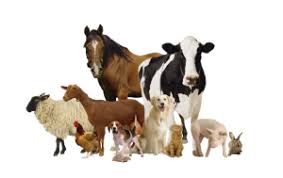As the OIE recognizes the gap between animal welfare standards and the actual situation in many countries, it supports the development of regional animal welfare strategies and plans for the implementation of standards.
To facilitate the application of OIE Welfare standards in the Middle East, the OIE Regional Commission for the Middle East at the OIE 82 General Session in May 2014 endorsed the Middle East Regional Animal Welfare Strategy (2014 -2019).
The implementation of the Middle East Regional Animal Welfare Strategy is ensured by the Middle East Animal Welfare (ME AW) Action Plan for 2016-2019 endorsed by the OIE Regional Commission for the Middle East during the 84th OIE General Session in May 2016. In the scope, ME AW action Plan transport of animals by sea (OIE TAHC Chapter 7.2) transport of animals by land (OIE TAHC Chapter 7.3) are identified as priority topic (together with slaughter of animals and stray dog population control).
Transport of animals in ME context covers the transport of livestock by sea from Europe, Australia, South America and Africa and intra-regional transport by land. The combination of international trade issues, transportation of animals by sea and land and specific climatic conditions create many challenges to ensure the welfare of animals for the entire duration of the journey.
As part ME AW Action Plans two Train the Trainers workshops on animal transport by land and by sea were conducted in the Region:
In addition, as in the framework of the OIE Platform on Animal Welfare for Europe, the OIE developed a concept of the ‘Whole Journey Scenario’ workshops as a novel approach, complementary to the capacity building activities mentioned above. The ‘Whole Journey Scenario’ workshops focus on the responsibilities of the Competent Authorities regarding animal welfare in transport during the whole journey, involving countries along the specific route. The first pilot ‘Whole Journey Scenario’ workshop involving seven countries of European region was held on April 2018 proving proposed approach relevant tool to support implantation of the OIE standards.
The main objective of the regional WJS Workshop for the Middle East is to help countries implement best practices during long distance and cross border animals’ transport in compliance with OIE standards on transport of animals by land (Chapter 7.3 of the TAHC) and transport of animals by sea (Chapter 7.2 of the TAHC) and with the goal to improve the welfare of animals for the whole duration of the journey involving various countries.
More specifically the Workshops will aim to:
The WJS workshop for Middle East is built on route scenario covering transport of livestock originating from Horn of Africa (Ethiopia, Sudan) transported from Djibouti by sea to the Gulf countries: United Arab Emirates, Bahrain, Saudi Arabia, Oman, Qatar and Kuwait.
The proposed methodology of the WJS workshop for Middle East workshop includes:
‐ General and technical presentations
‐ Reports on country situations
‐ Field visit – harbor/quarantine
‐ Working groups session based on whole journey scenario case study to identify key challenges in implementation of OIE standards
‐ Presentations of examples of best practices and discussion on addressing identified
‐ Working groups session to develop a template for procedures, which could then be used for routine and emergency scenarios between countries CA.
Proposed agenda is presented in Annex I.
The Workshops are targeting countries along the route of long distance and cross border transport of animals (countries of origin, transit countries including harbors for see transfers, destination countries), in addition to the other countries from the middle east participated previously in the ToT workshops 2018-2019.
It is proposed to invite 3 participants per country:
The WJS Workshop for ME is targeting following countries: Ethiopia, Sudan, Djibouti, United Arab Emirates, Bahrain, Saudi Arabia, Oman, Qatar, Kuwait, Somalia, Iraq and Jordan
In addition, it is proposed to invite the flowing observers:
– Representatives of the business operators (sea transport operators)
– NGOs
– Representatives relevant regional organizations
The main expected outcome is a clear improvement of the welfare of the transported animals from their departing to arrival points. More specifically, the WJS Workshops are expected to result in:
‐ The full understanding of OIE standards, in particular on the communication requirements among the various involved CA along the journey;
‐ The establishment of the Directory of the Competent Authorities involved in each route;
‐ The developing templates for routine (and emergency) procedures among the various CA according their own national legislation and procedures
The OIE Regional Representation for the Middle East responsible for the preparation and organization of the workshop with technical support by OIE Platform on Animal Welfare Secretariat (OIE Sub-Regional Representation in Brussels)
Date and location: 4-6, November 2019, Amman-Jordan.
